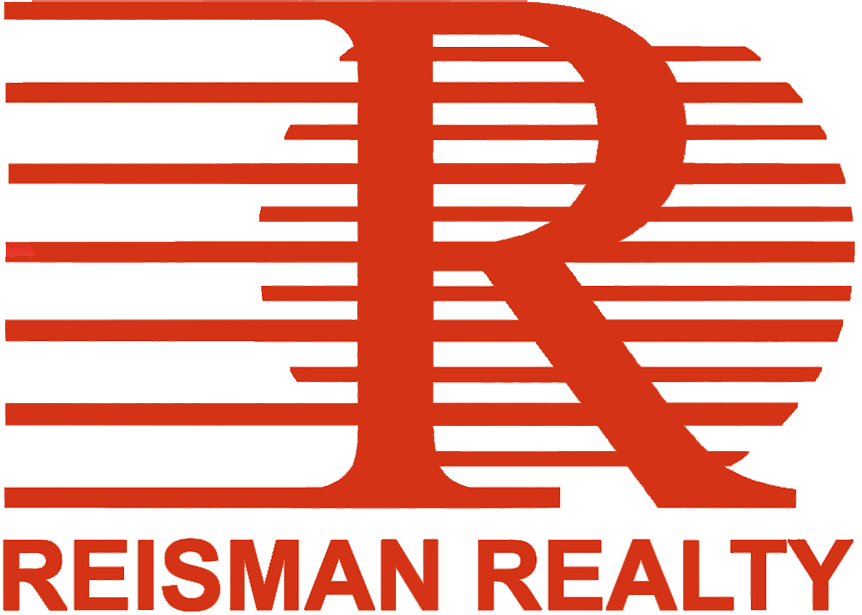Important Features When Looking For An Industrial or Warehouse Property
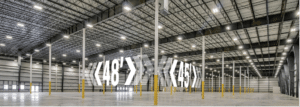
Industrial real estate is in high demand. Whether you’re a manufacturer, warehouse user, distributor, or retail wholesaler, it is essential to understand the needs of your business and what to look for to find the right industrial property. This list covers the key features to consider when searching for an industrial property.
1. Excellent Location
When it comes to purchasing an industrial warehouse, the most important factor is location. For most commercial properties, it’s critical that the location you choose has good access to major arterial roads and transportation links for efficient distribution. Time required and ease of access to highways, rail, ports, airports, and even international border crossings should all be considered. The prime industrial properties combine some or all of these location benefits on a single site. When your tenants have success at your location, they will be more likely to stay there for an extended period.
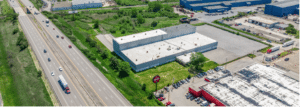
2. Site Layout, Size, & Floor Space
Amount of floor space for doing the activities necessary in your business as well as storage space is an obvious consideration, and you will need to look at the average warehouse square footage needed. Reisman Realty is able to help you pinpoint the size required. Accessibility for trucks in terms of roller doors, deep docks, and wide bays are also major considerations for most industrial businesses. The layout of an industrial site will impact how trucks access the facility as well as the how crowded it may be when multiple trucks enter the industrial property at the same time. The amount of the building dedicated to an office area is an important consideration. It is a highly valuable feature that many property owners do not think of, but this area is for the management team and sometimes used for meeting and demonstrating products to customers. The proportion of the building used for the office area becomes an important decision.
3. Interior Height
Your industrial building’s clearance height is important for businesses requiring plenty of palette storage or with manufacturing equipment that is tall. Clear heights multiply your storage space without the need for additional floor space.
4. Site Coverage
Site coverage is the ratio of the industrial building to the overall size of the industrial property. Site coverage depends on each business’s unique requirements, so space for shipping container storage, room to maneuver large trucks, and parking needs directly impact yard requirements.
5. On-Site and Local Amenities
Consumer demands for industrial space has increased in recent years, and it’s important that the industrial building you are considering has the amenities to meet current and future business needs. Consider that your industrial space has sufficient electrical capacity, sprinkler systems, and employee break rooms. For businesses in the food delivery services industry, cold storage solutions are critical. Proximity to nearby amenities like dining, housing, and hotels, and entertainment are important for attracting employees and hosting visiting clients.
6. Surrounding Population
The size of the local population and their distance from your location is important as you consider recruitment and staffing needs at your new industrial location. Workers are more easily attracted and retained.
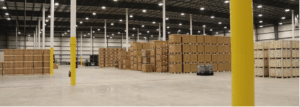
7. Automation Capacity
Automation continues to play an ever-increasing role in industrial buildings, so it should be considered when looking for industrial real estate, as it may be an important future consideration.
8. Locating in an Industrial Park
Moving your business can be costly and timely, however you can often reduce the costs associated with relocation if you locate your business in an industrial park. Whether your business expands or contracts over the years, by locating in an industrial park today it can allow you to move your business to a different area in the park in the future, reducing costs associated with moving equipment, redesigning logistic and shipping routes, and reducing the impact on your current employees or even eliminating the need to hire replacement staff.
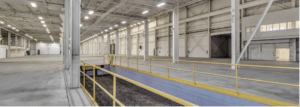
9. Property Management
Working with an established landlord with an in-house property management team that quickly responds to issues frees up executives so they can focus on running the business enterprise. This ultimately saves time and money, and makes the operation run smoother.
10. Cost per Square Foot
Another important factor when purchasing industrial warehouses concerns budgeting. The cost per square foot depends on the property’s condition, as well as its location. There is a wide range for thee costs and Reisman Realty can help you determine the level that provides value, income, and equity benefits for you.
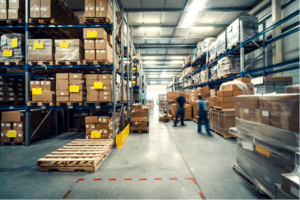
The Purchasing Industrial Warehouses as Investments
At the end of the day, purchasing an industrial warehouse is typically an excellent investment. However, when you keep the factors above in mind during your search, you are much more likely to be happy with your investment.
